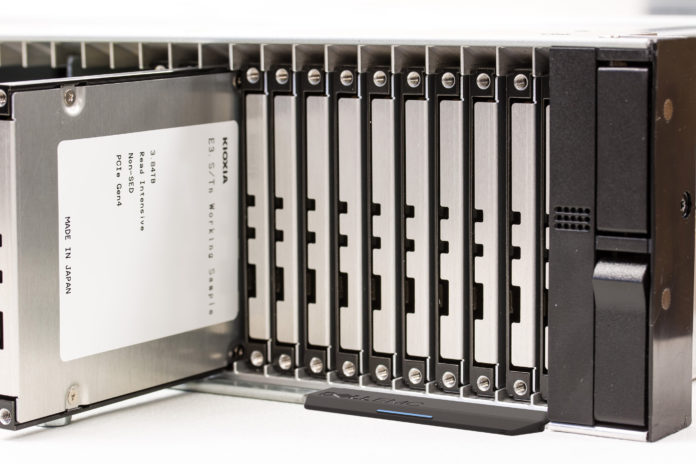In this week’s storage news roundup, there are signs of a coming together of Kioxia and Western Digital over zoned SSDs. Also ,Elastic is adding searchable snapshots stored in public cloud object stores.
Kioxia adds QLC support to software-enabled flash
Kioxia has added support for QLC flash and weighted fair queueing to its software-enabled flash (SET) technology.
SWET enables a big data centre operator to closely manage the details of data placement on SSDs to optimise capacity, efficiency, performance and endurance across a large fleet. APIs provide for the creation of virtual devices on SSDs similar to Western Digital’s Zoned SSD concept. Kioxia is active in the NVMe technical working group for ZNS (Zoned Namespace) SSDs.
Weighted fair queueing (WFQ) is a packer-based network scheduling algorithm that provides for different bandwidth priorities to be given to different types of traffic, with different flow types given a different weight in scheduling decisions. Different weights could be given, for example, to traffic flows to the different virtual devices set up on SSDs by SET. This would enable varying levels of service to be met.
Kioxia claims this allows the user to define and control latency live as applications are running.
Searchable Snapshots
Elastic, which supplies Elasticsearch and the Elastic Stack, has announced the beta of searchable snapshots. The snapshots can be searched by analytical routines to get insights to drive operational efficiencies.
Elastic will initially support a new lower-cost cold tier of storage, which offloads redundant copies of data to the object stores to drive savings. The redundant copies are searchable snapshots of data in primary storage tiers that are placed in low-cost object stores such as Amazon S3, Azure Storage, and Google Cloud Storage. This frees up primary storage.
Elastic claims formalised data tier definitions with built-in data transition rules and integrated index lifecycle management will make it easier for customers to manage the full lifecycle of their data automatically.
In a future release, Elastic customers will be able to use a frozen tier of storage, such as AWS Glacier, where all data can be kept in lower-cost object stores. Read more in an Elastic blog .
Flash Memory Summit 2020 awards
The virtual Flash Memory Summit has concluded and attendees have voted for 18 examples of outstanding technology in various categories.
One category was the Most Innovative Flash Memory Technology and the awards were given to:
- SSD – Intel’s Optane Persistent Memory,
- Controller and System – Marvell and HPE NVMe RAID Accelerator for HPE OS Boot Device,
- All-flash array – Pure Storage QLC-based FlashArray//C,
- Hardware and Software Architecture – VAST Data,
- Industry Standards – Kioxia EDSFF E3.S SSD and Storage System,
- Industry Standards – NVM Express and Zoned Namespaces (ZNS),
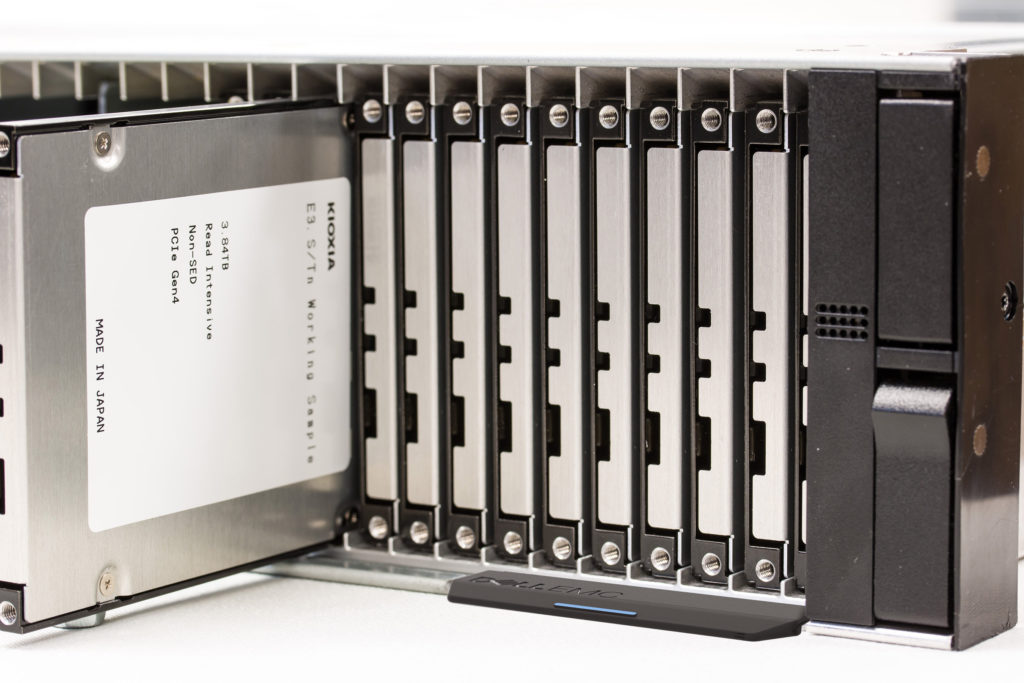
One award winner was Pavilion Data. This was for its HyperParallel Flash Platform in massive deployments across 10s of petabytes. It achieved 120GB/sec, 20 million IOPS, and latency of only 25µs across the fabric to meet the facial recognition needs of a Federal Government Agency.
Other winners included Pliops (compute on storage drive), Fungible (Data Processing Unit FS1600), WekaIO (Weka Accelerated DataOps for AI) and IBM with its ESS3000 all-flash array..
Shorts
Caringo has announced Swarm 12 object storage, which enables more flexible distributed protection and immediate global content use across geographically dispersed sites. The software integrates with single sign-on (SSO) platforms and has a simplified web-based UI. There is support for S3 Glacier and Glacier Deep Archive and capacity and performance optimisations for dense storage nodes and flash.
CRU Data Security Group (CDSG), a provider of data security, data transport and disaster-proof data storage devices, has taken over fellow US company Digistor, a manufacturer of secure solid-state drives and removable storage products. The transaction is described as a merger.
The CXL Consortium has released the 2.0 version of the Compute Express Link specification. CXL interface tech is for connecting data centre host processors to accelerators (graphics chips and FPGAs), memory buffers, and smart network interface controllers (NICs). CXL 2.0 is backwards compatible with CXL 1.1 and 1.0 and adds memory pooling, connecting many devices across one CXL Link, standardised persistent memory management and a CXL fabric manager.
Infinidat is marketing an edge security appliance that combines the company ‘sInfiniBox storage array; VMware Validated Designs (VVD) for SDDC implementation; and Splunk SIEM for realtime security monitoring, threat detection, forensics, and incident management.
Inspur Information and Samsung Electronics announced at OCP Tech Week a jointly-developed1U server-based open all-flash storage resource pooling solution. The is designed for local large-capacity/high-performance storage and the product architecture is to be made open source.This server uses the new Ruler SSD E1.S format, holds up to 256TB in 1U (1PB in 40U), and supports remote sharing via NVMe-oF.
Kioxia wants people to stop using the “ruler” SSD moniker. It tells us: “It’s not a big deal, but we wanted to provide some background on the ruler naming. Kioxia is in the SFF groups that are defining EDSFF E3x and E1.x, and ruler is not officially mentioned in either specification. The term ruler was used before E1.L was actually named and … stuck around as a nickname. E3.x is more like a traditional 2.5” form factor, so that is certainly not like a ruler. Also, Kioxia is co-leading the SNIA SSD SIG that markets EDSFF and we are not using ruler when discussing E1.S.”
Palo Alto Networks has introduced Enterprise Data Loss Prevention (DLP), a cloud-delivered service to prevent data breaches by automatically identifying confidential intellectual property and personally identifiable information (PII).
Panasas has appointed Brian Peterson as Chief Operating Officer. he has held roles as SVP of sales and marketing, vice president of business development, and vice president of international operations. In the latter role, he ran EMEA for Emulex.
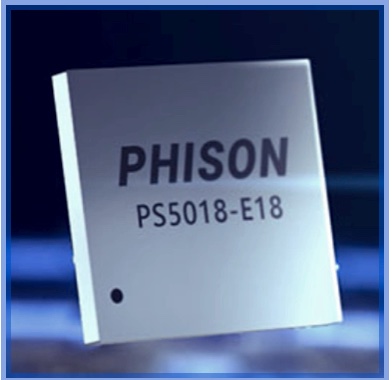
Phison has built the PS5018-E18, a second generation PCIe Gen 4 NVMe controller. It has 4 PCIe lanes and uses a distributed architecture with many small cores to perform the workload in parallel. It delivers a record 7GB/sec on both read and write access.
Pliops is developing its Storage Processor and showed it at the Flash Memory Summit. It is a PCIe card which accelerates storage processing and uses Intel QLC (4bits/cell) 3D NAND flash. The card offers thin provisioning, reduced write amplification, and a 5-year warranty. It provides RAID 5-like protection at twice RAID 0 speed, and better-than-TLC SSD performance. The product is sampling with GA in early 2021.
Redis Labs has announced the new fully integrated tiers of Redis Enterprise on Microsoft Azure Cache for Redis are available now in public preview. These new tiers bring search, time series and Bloom probabalistic data structures to Azure Cache. Azure customers can consume Redis Enterprise v6.0 like any other Azure Cache tier and use their existing commitment to Azure.
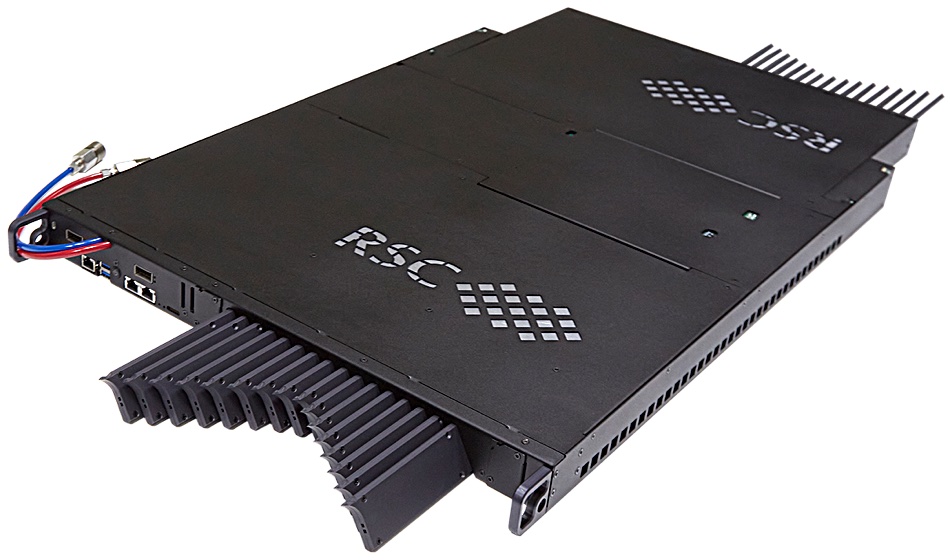
At FMS 2020 the RSC Group announced that its RSC Data Storage-on-Demand solutions support Intel’s DAOS (Distributed Asynchronous Object Storage)open-source cluster file system. It enables multi-layered storage based on Lustre file system in Disaggregated Composable Infrastructure and flexible management of NVMe disk pools. The RSC BasIS platform enables a composable approach for DAOS management combining servers with PMEM and servers with NVMe devices in pools connected with fast network fabric.
RSC presented an improved RSC Tornado AFS intelligent data storage-on-demand system with up to 1PB capacity per node enabled by 32x Intel SSD drives with NVMe in EDSFF.L format, The node also includes two Xeon Scalable 2nd Generation processors, Optane SSD drives and Optane DC Persistent Memory modules. RSC Tornado AFS nodes use hot water liquid cooling with record low PUE level of 1.04.
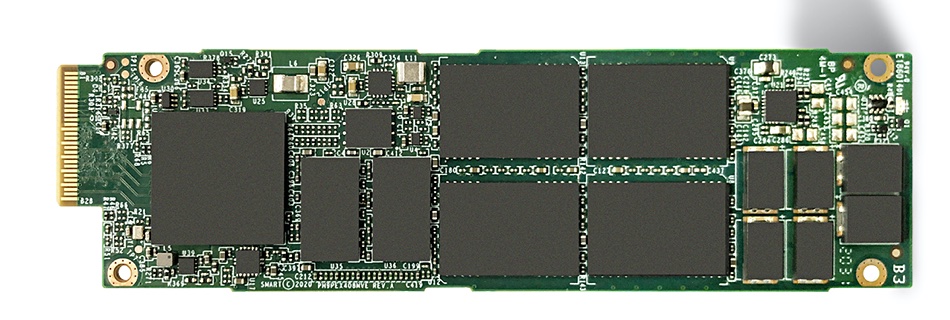
SoftIron is joining the iRODS Consortium after certifying that its HyperDrive storage appliances are fully compatible with the iRODS architecture. iRODS develops free open source software for data discovery, workflow automation, secure collaboration, and data virtualization that is used globally by research, commercial and governmental organisations.
ThinkParQ, the company behind the parallel file system BeeGFS, has appointed Dr. Peter Braam as CTO. He has held exec roles at public companies and has founded or co-founded six start-ups, and has been working with the University of Oxford and the University of Cambridge on Radio Telescopes, Machine Learning and Data Intensive Computing. Braam will lead the R&D team, guide BeeGFS’s architectural and product development, and its strategic roadmap.


